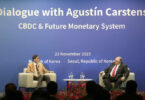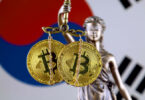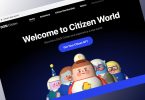South Korea’s Gangwan-do province plans to use blockchain and AI to manage chronic cardiovascular disease data without a hospital visit, according to a Yonhap News report. The platform is part of a more extensive health monitoring project for chronic diseases in Gangwan-do.
The health project is one of the ten different public services that are trialing blockchain. The initiative will run until December 2020 and has received funding of 1.1 billion won ($886,453).
Chronic diseases and ailments require frequent hospital visits and constant observation. The goal is to develop a solution to remotely manage chronic issues, including self-care before hospital visits as well as post-hospital visit care.
The solution will record previous health data and uses AI to predict and analyze chronic health events. Gangwan-do will first use the platform for 100 patients, and gradually expand the service to 450,000 people with chronic diseases in the province.
“This year, we will complete the construction and demonstration of the platform and promote the application of the pilot operation and expansion of services in 2021 through the establishment of a pilot operation plan and the residents’ briefing session,” a city official told Yonhap.
The solution can also be scaled to include other chronic ailments such as diabetes or arthritis.
A few months ago, New York’s Mount Sinai Hospital collaborated with the Open Health Network to develop a digital healthcare solution for Chron’s disease patients.
The blockchain ecosystem in South Korea is thriving, and two government agencies recently created a $3.1 million fund for blockchain trials. Seoul’s satellite city Bucheon is using blockchain for shared parking under a smart city initiative. And the government is leveraging the technology for defense and arms procurement.
Additionally, South Korea seems to be leading the charge for blockchain-based digital identity and has three separate groups working on identity.






